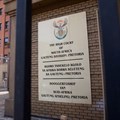One of the greatest obstacles in the way of divorce is fear that a former spouse could be so devious and obstructionist as to cause financial ruin to the rest of the family.
The woman involved in an ongoing case in the Cape Town High Court seems to be having just this experience. But in the latest round of court hearings, the presiding judge, Derek Wille, has acted to maintain the right, and the duty, of a presiding officer in a case where the interests of children are concerned, to make orders and ask questions beyond the usual.
Wille’s stance is an important reassurance to divorcing couples that the court could well intervene when it seems one party is resorting to devious means to put the other in an invidious position. And it should act as a warning that, no matter the twists and turns that one side might put in the way of a fair settlement, hide and seek is not a game that the courts approve.
This judgment tells a horrible story about one partner in a divorcing couple apparently being absolutely determined that the other partner should end up with nothing – even if it means that the children will suffer too.
Originally married in terms of Islamic law, the couple have finalised their religious divorce. Now the secular courts are dealing with the civil dissolution of their marriage, and this is where questionable deals are being struck.
More than two years ago, the ex-wife – the parties can’t be named – was awarded an interim financial assistance order called a Rule 43 order, intended to help her and the two minor children stay afloat while the rest of the issues between the two parents were sorted out, pending divorce.
Husband sequestrated by his own brother
In terms of that court order, the ex-husband was to have paid her a certain amount. But he didn’t comply, and is now claiming that, in fact and in law, he cannot.
That’s because, after the court’s interim financial assistance order, something quite astounding happened that changed his ability to pay the money as ordered – the brother of the husband brought an application for the estate of the husband to be sequestrated.
This in turn meant that, as the husband is now officially bankrupt, he has no access to funds from which to pay.
‘Drastic step’ would harm children – judge
The sequestration order must have stunned the wife. Certainly, as Judge Wille said in this recent decision, it caused immense difficulties for her and the children. He added that it was difficult to understand why the two brothers had taken this ‘drastic’ step, all the while knowing ‘that it would harm the minor children of the marriage’.
Adding to the judge’s difficulty in understanding the insolvency move, and the facts behind it, was that the husband and the brother are still close friends and business colleagues.
There are many questions that need answering in the wake of the brother’s ‘drastic step’. Like the basis on which the brother claimed the estate should be sequestrated. And whether the husband is in fact now living in poverty as an insolvent, without access to funds and unable to honour the court order to pay the wife.
But the husband’s brother is trying to prevent the court from investigating the answers to these questions, and his attempts to do so were at the heart of the most recent judgment in this on-going fight over winding up the marriage.
Shani Van Niekerk 1 Dec 2022 Role of brother’s attorney questioned
The brother claimed he had five acknowledgements of debt from the husband, but the judge points out that of these, only two remained valid. The rest had prescribed – effectively expired because so much time had passed without them being repaid. So, was it necessary to sequestrate the husband’s estate to satisfy these debts?
Then, there is the question of the brother’s attorney. The brother, as the main creditor of the husband’s sequestrated estate, now effectively has it under his control.
But the brother’s attorney also acted for the trustees of the husband’s insolvent estate – and, in another twist, the attorney also acts for the husband’s new wife in other actions that have to do with the former matrimonial home.
Wife warned to quit former marital home or be evicted
The judge points out some of the strange developments in the wake of the sequestration. These include the sale of the former matrimonial home, where the wife and children had been living.
Not only was this house sold for less than the municipal value to a separate company owned and controlled by the brother, but the wife was given no notice of the sale and only learnt of it when she received an official warning that if she didn’t get out of the house, she and the children would be evicted.
Then there is the husband’s alleged misappropriation of more than R3m from the close corporation that runs a petrol station business, and the fact that this CC is where – despite the alleged ‘misappropriation’ of a small fortune – he’s still employed.
Deliberate orchestration to avoid paying, claims wife
The wife claims that the sequestration was ‘deliberately orchestrated’ so that the husband wouldn’t have to make any of the payments that the court had ordered in her and their children’s favour. In addition, his insolvency means he has so far been able to fend off the contempt action she brought when he ignored the court order to pay her. While one court found he was not in contempt, presumably because of the sequestration order, she is trying to appeal that finding.
She has filed an application for leave to appeal, but obviously she will need information about his finances to show any appeal court whether he could in fact afford to pay her, or whether this claim was a ruse. And she is being given the run-around by the brother, who shuts every door through which she might be able to get this crucial information.
Is it true that the husband ‘only earns’ R35,000 a month from the CC? Or is it true, as the wife claims, that he is living a rather splendid life, celebrating his new marital relationship with gifts and events hosted at lavish venues. She also says he had an overseas trip with his new spouse and that he drives a luxury vehicle owned by the CC for which he works.
Expensive lifestyle, despite sequestration
Against this, he has opposed all the litigation involving his wife, preferring to pay legal fees rather than paying for their children’s expenses. He also ‘frequents expensive restaurants, arranges expensive outdoor activities with his children’ and was to have travelled overseas yet again at the end of 2023.
Judge Wille had earlier ordered the husband’s brother to give evidence to the court and supply certain documents. This was so that the judge could properly evaluate the husband’s claim not to be able to afford the financial payment that the court had previously ordered. Now the brother was claiming the order for him to appear and testify, and to produce the documents, should be ‘reconsidered’ and ‘amended’.
The judge sounded a bit taken aback by this move, since he had been led to believe that the order to testify and to produce the documents had been made by agreement between the brother, the husband, and the wife.
Lesego Mothowamodimo 19 Sep 2022 Both brothers seem to believe they aren’t ‘bound by court orders’
Now, however, the brother had taken a different line, saying he wasn’t bound by an agreement where he wasn’t a named party. This, says the judge, echoes the husband’s attitude, since he also seems to believe that he isn’t ‘bound by court orders’.
The judge writes that the financial affairs of the two brothers are thoroughly intertwined, and that the court can’t simply turn a blind eye to the questionable transactions between them. There was also no explanation of the urgency with which the husband’s estate was sequestrated.
He lists unexplained actions by the two men on which the court needed clarity, and that underline the importance of the brother’s evidence.
Information not confidential just because someone says so
Claiming confidentiality, the brother said the wife’s attorneys could not make copies of certain financial documents and that she was barred from so much as seeing or getting copies of others. His justification was that these were ‘confidential’. But the court explained that merely claiming confidentiality isn’t enough for someone to refuse to make a document available that a court needed to decide the issues before it.
The brother took the same approach to documents related to the CC, again, without justifying why they should be protected. ‘Information is not confidential just because the person who would like it to be regarded as such says it is confidential,’ the judge writes, adding that the underlying documentations related to the cause of the sequestration needed to be scrutinised.
The brother had also argued that the judge was not allowed, in a case like this, to call for oral evidence. Rejecting this suggestion, the judge said that, provided it was directed at reaching a ‘just and expeditious’ decision, the power of the court to do so was unqualified and unrestricted.
Tania Broughton 9 Mar 2022 Court has wide powers to question a witness when children’s best interests at stake
In addition, ‘when a court has to determine what is in the best interests of minor dependent children, it has extremely wide powers’ and it was the court itself that decided what would be relevant. The brother had given no explanation as to why he should be able to ‘dictate the terms’ under which the documents would be made available to the court, the wife, and her legal team.
The interests of justice demanded that the documents be produced and that oral evidence by the brother be heard.
The way in which the brother approached the litigation, considered against the background of the plight of the wife and the children, showed that the financial affairs of the two brothers were ‘closely aligned’. The whole basis of the sequestration had thus to be questioned, along with the husband’s true financial position. Against this, the court couldn’t be expected to turn a blind eye to all the questions.
The judge therefore dismissed the brother’s application to reconsider his earlier ruling/order and held that the brother was liable for the legal costs of this round of the dispute. As a result, the brother must now comply with the order, make the documents available and come to court to answer questions.
Elements of intrigue: what can the courts do?
This is a case to keep an eye on because it has so many elements of intrigue. Will the husband and brother turn out to be in a plot together to strip the first wife and the children of any financial support? Is the sequestration of the husband’s estate just another ruse and part of the plot?
If so, will the court overturn the sequestration? Can the courts punish divorcing parties if they resort to fraudulent strategies like this and get caught out?
As for the wife, there’s an even more important question in the wake of this judgment and the questions flagged by the judge: will she have enough money, energy, and determination to keep fighting this battle?
The court is clearly unimpressed by the brother trying to push his weight around and has imposed some discipline in the case so that essential questions are answered, and the truth may emerge.
But in the end, even if the wife wins her battle, it’s a case that highlights the need for divorcing couples to resolve their disputes before legal costs escalate – and for both sides to act fairly.











































